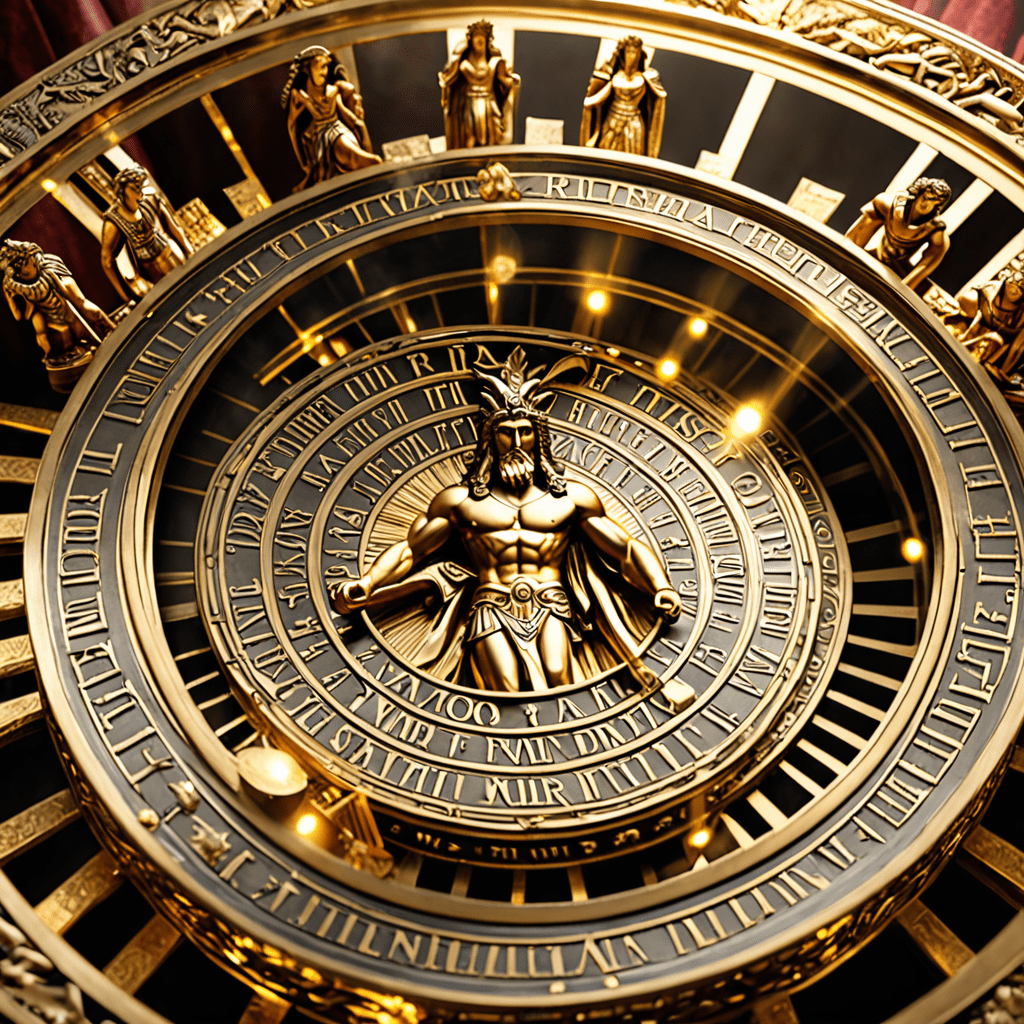Exploring the Concept of Prosperity and Wealth in Roman Mythology
The Relationship Between Prosperity and Wealth in Roman Mythology
In Roman mythology, the concepts of prosperity and wealth were intricately woven into the lives of both mortals and deities. Romans believed that various gods and goddesses influenced the different aspects of life, including wealth and abundance. One of the most prominent figures associated with prosperity and wealth was Jupiter, the king of the gods. Jupiter was often called upon for blessings of prosperity and financial success. Additionally, the goddess Fortuna, who represented luck, fate, and fortune, played a significant role in determining one’s wealth in Roman belief.
Symbolism of Prosperity and Wealth In Roman Mythology
Symbols of prosperity and wealth were prevalent in Roman mythology. For example, the cornucopia, also known as the “Horn of Plenty,” symbolized abundance and prosperity. It was often depicted overflowing with fruits, vegetables, and other bountiful harvests, representing the wealth and blessings that the gods bestowed upon individuals. Other symbols of wealth included the golden coin, which symbolized financial success, and the laurel wreath, a symbol of victory and prosperity.
How Romans Sought Prosperity and Wealth Through Gods and Rituals
Romans believed that they could harness the power of the gods to attract prosperity and wealth into their lives through various rituals and offerings. They would make offerings to deities such as Mercury, the god of commerce, to seek success in business and financial endeavors. Additionally, Romans would participate in elaborate festivals dedicated to Fortuna, hoping to attract good fortune and abundance. The concept of pietas, a duty and devotion to gods and family, was also essential in securing blessings of prosperity and wealth in Roman society.
The Importance of Prosperity and Wealth in Roman Society
Prosperity and wealth held immense significance in Roman society, as they were viewed as signs of divine favor and blessings. Individuals who were prosperous and wealthy often held high social status and were respected in their communities. Additionally, the acquisition of wealth through honest means was greatly valued in Roman culture, emphasizing virtues such as frugality, industry, and integrity. The pursuit of prosperity and wealth was not only a personal goal but also a way to contribute to the prosperity and stability of the Roman Empire.
Overall, the concept of prosperity and wealth in Roman mythology provides valuable insights into the beliefs and values of ancient Roman society. By understanding the role of gods, symbols, rituals, and societal expectations related to wealth, we gain a deeper appreciation for how prosperity and wealth were perceived and pursued in the ancient Roman world.
Frequently Asked Questions about Prosperity and Wealth in Roman Mythology
What role do gods and goddesses play in the concept of prosperity and wealth in Roman mythology?
In Roman mythology, gods and goddesses are often associated with various aspects of prosperity and wealth. For example, Jupiter, the king of the gods, is linked to abundance and financial success, while Fortuna represents luck and fortune. These deities are believed to influence one’s economic and material well-being.
How does the story of Midas reflect the theme of prosperity in Roman mythology?
The tale of King Midas, who wished for everything he touched to turn to gold, is a prominent example of the theme of prosperity in Roman mythology. This story emphasizes the dangers of greed and the importance of understanding the true value of wealth beyond material possessions.
Are there any rituals or practices associated with attracting prosperity in Roman mythology?
In Roman mythology, various rituals and practices are believed to attract prosperity and wealth. For example, offerings and prayers to deities like Mercury, the god of commerce, and Juno, the goddess of abundance, are common ways to seek their blessings for financial success. Additionally, participating in festivals and ceremonies dedicated to these deities is thought to bring prosperity.
What symbols are commonly associated with prosperity and wealth in Roman mythology?
Symbols of prosperity and wealth in Roman mythology include the corn



